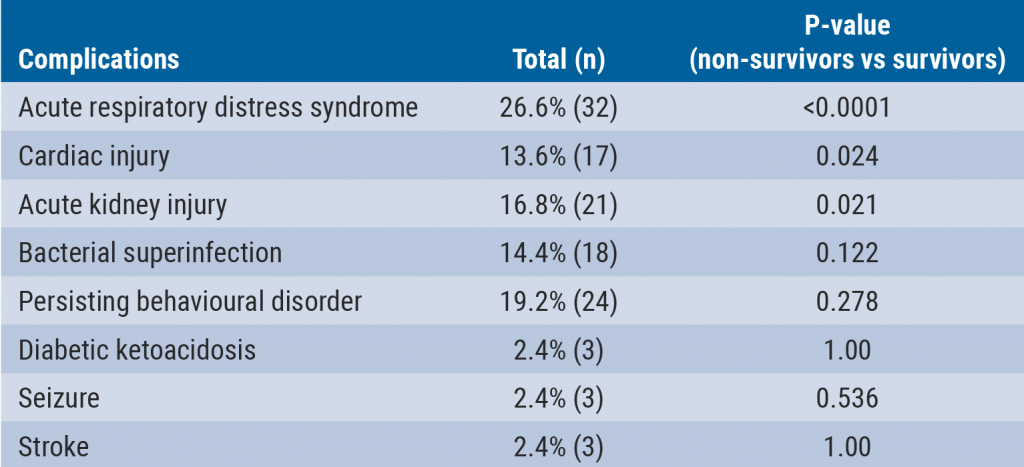The results of the phase 3 RELIEF study (NCT04152083) were presented at the EAN Virtual Congress and simultaneously published in JAMA [1,2]. Participants were 18–75 years of age and had migraine on 4–15 days per month in the 3 months prior to screening. During a moderate-to-severe migraine attack, they were randomised to eptinezumab 100 mg (n=238) or placebo (n=242), administered intravenously. There were 2 primary efficacy endpoints: time to headache pain freedom and time to absence of MBS (nausea, photophobia, or phonophobia).
The eptinezumab group achieved significantly faster headache pain freedom than the placebo group (median 4 vs 9 hours; HR 1.54; P<0.001) as well as absence of MBS (median 2 vs 3 hours; HR 1.75; P<0.001). Two hours after infusion, the percentage of patients reporting headache pain freedom was 23.5% and 12.0% (P=0.0009), respectively. The percentage reporting absence of MBS was 55.5% and 35.8% (P<0.0001). This difference remained significant after 4 hours.
In the eptinezumab group, statistically significantly fewer patients used rescue medication within 24 hours than in the placebo group (31.5% vs 59.9%; P<0.0001). There was no difference in treatment-emergent adverse events, occurring in 10.9% and 10.3% of eptinezumab and placebo-treated patients. The most common was hypersensitivity (2.1% vs 0%). No notable safety findings were identified.
- Winner P, et al. Efficacy and safety of eptinezumab initiated during a migraine attack: Results from the RELIEF study. EPR-101, EAN 2021 Virtual Congress, 19–22 June.
- Winner PK, et al. JAMA. 2021;325(23):2348–56.
Copyright ©2021 Medicom Medical Publishers
Posted on
Previous Article
« Erenumab superior to topiramate for migraine treatment Next Article
Factors associated with decreased migraine attack risk »
« Erenumab superior to topiramate for migraine treatment Next Article
Factors associated with decreased migraine attack risk »
Table of Contents: EAN 2021
Featured articles
Letter from the Editor
COVID-19
First evidence of brainstem involvement in COVID-19
Cognitive/behavioural alterations persistent after COVID-19
Neural base of persistent hyposmia after COVID-19
Neurological symptoms and complications of COVID-19 affect outcomes
Cerebrovascular Disease
Intracerebral haemorrhage only slightly increases mortality in COVID-19 patients
Stroke with covert brain infarction indicates high vascular risk
Expanding precision medicine to stroke care
Dexamethasone not indicated for chronic subdural haematoma
Cognitive Impairment and Dementia
Severe outcomes of COVID-19 in patients with dementia
Promising diagnostic accuracy of plasma GFAP
Sex modulates effect of cognitive reserve on subjective cognitive decline
Hypersensitivity to uncertainty in subjective cognitive decline
Epilepsy
Minimally invasive device to detect focal seizure activity
‘Mozart effect’ in epilepsy: why Mozart tops Haydn
Migraine and Headache
Factors associated with decreased migraine attack risk
Pregnant migraine patients at higher risk of complications
Occipital nerve stimulation in drug-resistant cluster headache
Rhythmicity in primary headache disorders
Multiple Sclerosis and NMOSD
Typing behaviour to remotely monitor clinical MS status
Alemtuzumab in treatment-naïve patients with aggressive MS
No higher early MS relapse frequency after stopping ponesimod
Good long-term safety and efficacy of inebilizumab in NMOSD
Neuromuscular Disorders
Inability to recognise disgust as first cognitive symptom of ALS
Pathogenic T-cell signature identified in myasthenia gravis
Parkinson’s Disease
Levodopa-carbidopa intestinal gel in patients with advanced PD
New Frontier – Navigated Transcranial Ultrasound
Exploring the possibilities
Related Articles

August 18, 2021
Severe outcomes of COVID-19 in patients with dementia
August 18, 2021
Pregnant migraine patients at higher risk of complications
August 18, 2021
Neural base of persistent hyposmia after COVID-19
© 2024 Medicom Medical Publishers. All rights reserved. Terms and Conditions | Privacy Policy

